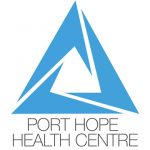Proper sleep, stretching and diet crucial to avoiding sports injuries
Dr. Andrew Fagan says many young athletes not getting enough rest
Many young athletes are full swing into their hockey season.
Evenings and weekends, after-school life can consist of multiple practices, games and tournaments.
With these busy schedules for months on end, young people start getting physically and mentally run down. Sport fatigue elevates the chances of players sustaining injuries on the ice.
A lot of school-aged young athletes are not getting enough sleep. Late evening practices and games combined with homework can often cut into sleep hours.
Athletes need to get enough sleep in order for their bodies to recover from the physical exertion they consistently give through the week.
The recommended range for school-aged children between the ages of 6 and 13 is 9 to 11 hours of sleep. For teenagers aged 14 to 17, the number slightly decreases to 8 to 10 hours of sleep. If young athletes are not getting enough sleep, they create a sleep debt, and muscles do not get enough rest time to recover fully.
Young athletes, especially hockey players, are not stretching enough and when they do stretch they are often using erroneous methods.
Before practice or games, athletes should utilize dynamic stretching. This form of stretching uses momentum to move body parts through ranges of motion used during play. Dynamic stretches aide in increasing blood flow to the muscles while they are being lengthened and shortened.
At the end of the practice session or game, athletes as a team need to make the time to do static stretching of main muscle groups being used during play. This will help with recovery and general flexibility.
Lastly, along with rest and stretching, young athletes need to eat proper foods that are going to intellectually get them through the day at school, prep them for evening activity, and help with muscular recovery after play.
This does take some planning by parents, but will help young athletes’ bodies physically perform better and help prevent sport injuries.
Consulting a dietitian or sport-focused health-care provider can assist with specific dietary requirements.
Dr. Andrew Fagan is a licensed chiropractor, kinesiologist and clinical acupuncture provider. You can reach him at dr.fagan@porthopehealthcentre.com or 905-885-5111




